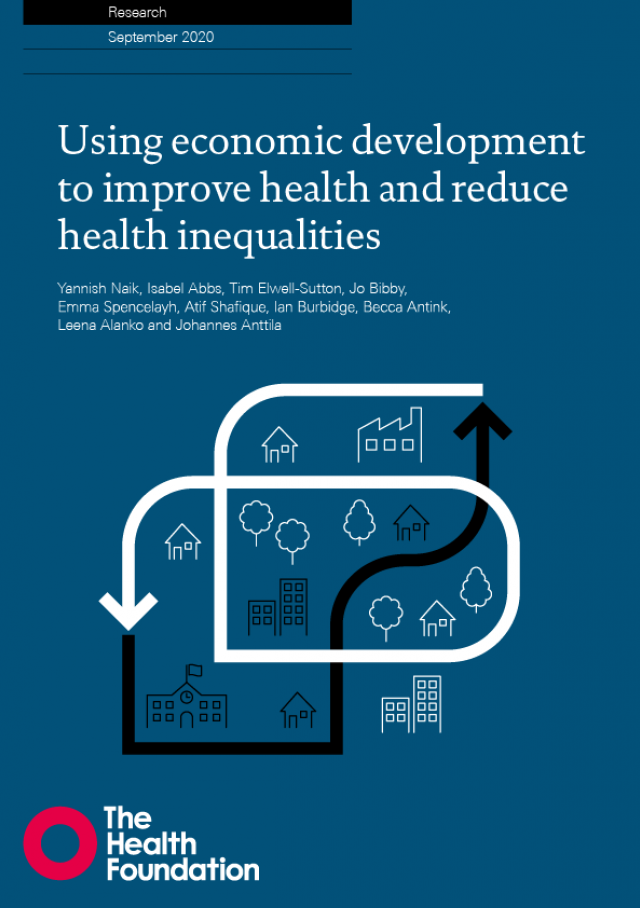Using economic development to improve health and reduce health inequalities
September 2020

Key points
- This report sets out how economic development can be used to improve people’s health and reduce health inequalities in the UK.
- The coronavirus (COVID-19) pandemic has shown us that people’s health and the economy cannot be viewed independently. Both are necessary foundations of a flourishing and prosperous society.
- As we seek to rebuild the economy post-pandemic and ‘level up’ UK regions, there is an opportunity to create more inclusive economies geared towards reducing inequalities and improving health.
- The report contains case studies from the UK and around the world. Produced with the RSA and Demos Helsinki, each of the case studies offers practical insights into how economies can be built that work better for everyone.
- The report sets out a series of recommendations to support policymakers, researchers and changemakers in taking action to create more inclusive economies that enhance health – at the level of both national and local government.
Creating a society where everyone has an opportunity to live a healthy life requires action across government. While social protection measures – such as income replacement benefits, pensions, free school meals, social housing – are widely recognised as a core mechanism for reducing inequalities, the impact of structural inequalities in the economy itself has generally received less attention. This report contains case studies of economic development strategies which look beyond narrow financial outcomes as measures of success, and instead aim to enhance human welfare.
The evidence base in this field is at an early stage, but it already points towards people’s health and wellbeing being promoted by inclusive economies. This means economies that support social cohesion, equity and participation; ensure environmental sustainability; and promote access to goods and services which support health, while restricting access to those that do not. A wide variety of economic development interventions are available to local and regional bodies to create this kind of economy and the report examines these in detail.
Economies for Healthier Lives programme
The Health Foundation is supporting the adoption of the lessons presented in this report through an upcoming 2020 funding programme, Economies for Healthier Lives.
Cite this publication
Further reading
Work with us
We look for talented and passionate individuals as everyone at the Health Foundation has an important role to play.
View current vacanciesThe Q community
Q is an initiative connecting people with improvement expertise across the UK.
Find out more


